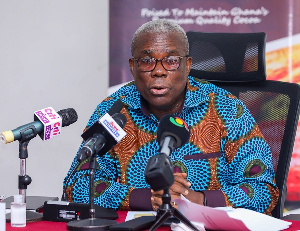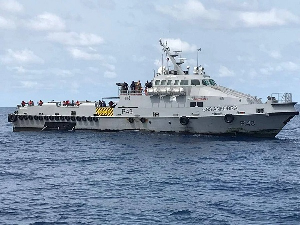Peter Mac Manu, a former National Chairman of the New Patriotic Party (NPP), has advocated for a regulation to impose a time limit on political campaigns in Ghana.
He believes this would afford elected governments ample time to implement their policies and programs for national development and reduce the financial burden on political parties and candidates caused by prolonged campaigns.
Speaking at the Ghana Academy of Arts and Sciences' annual public forum, themed "National Elections in Ghana: Issues and Prospects," Manu addressed the topic "Regulating Campaign Financing for National Elections: A Comparative Perspective."
He criticized the current lengthy campaign period, which, in his view, leaves no respite for elected governments to effectively implement their policies.
"In this country, we used to say that the next elections begin after the end of the last election.
"How can you campaign for four years?" he questioned. Manu proposed that campaigns should commence only when the Electoral Commission (EC) has received and approved an aspirant's candidacy, making them eligible to contest the elections.
He highlighted instances where candidates' nominations were rejected by the EC, leading to legal battles, as recently seen in the Assin North Constituency.
"So, if the EC has not approved your candidature, you may win your party's parliamentary or presidential primaries, but you are not a candidate," he explained.
Manu suggested that the campaign period should begin on the day the EC approves nominations, which, under current circumstances, is September 19.
He expressed concern over the four-year-long campaigning period in Ghana, contrasting it with the six-month campaign periods in Nigeria and Kenya.
As the NPP Campaign Manager for the 2016 and 2020 elections, Mr. Manu called for a comprehensive reform of Ghana's Political Parties Act 2000 (Act 574) to regulate campaign donations and expenditures.
He advocated for expenditure limits for both political parties and their candidates and clarity on what constitutes election expenditure.
Addressing the monetization of politics, Manu noted the astronomical increase in the cost of politics, which has excluded competent individuals, including the youth, women, and persons with disabilities, from seeking political office.
He urged bold steps to end this trend and prevent the potential of power being awarded to the highest bidder.
William Nyarko, Executive Director of the Africa Centre for International Law and Accountability, echoed these sentiments at the same event.
He lamented the lack of campaign financing regulations and called for immediate action to develop such regulations. Nyarko criticized the current legal framework as inadequate and proposed state funding of political parties to enhance accountability.
Politics of Thursday, 27 June 2024
Source: GNA













